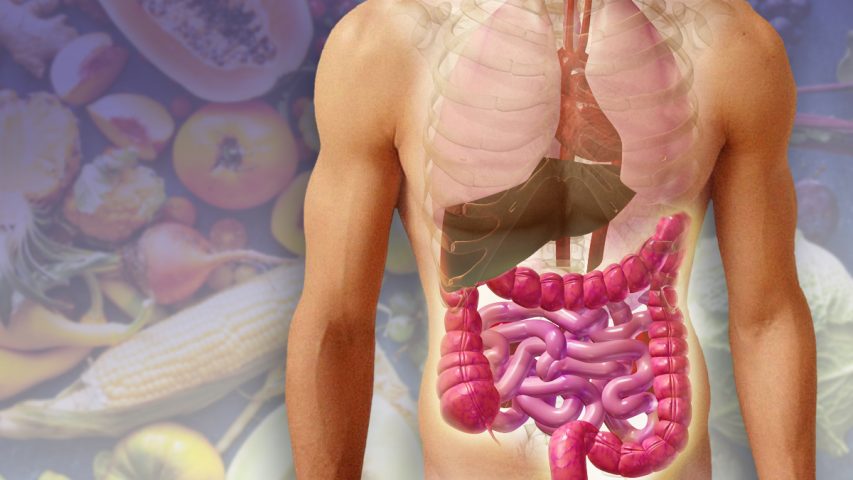- Have any questions? Contact us!
- info@dr-rath-foundation.org

Cancer Study Confirms Chemotherapy and Radiation Treatments Cause Cognitive Impairment
November 28, 2018
Spanish Government Wants Europe To Support Its Anti-Natural Therapies Offensive
December 5, 2018New Meta-Analysis Recommends Vitamin D In Treatment Of Inflammatory Bowel Disease

A new meta-analysis carried out by researchers in China recommends that vitamin D should be used in the treatment of inflammatory bowel conditions such as Crohn’s disease and ulcerative colitis. Published in the Medicine (Baltimore) journal, the analysis looks at a total of 18 randomized controlled trials involving 908 patients. Noting that vitamin D deficiency is prevalent in patients with inflammatory bowel diseases, the researchers cite recent studies showing that supplementation with this micronutrient can induce and maintain remission.
The meta-analysis describes how the prevalence of inflammatory bowel diseases is increasing worldwide, with around 3 million people in Europe and 1.5 million in the United States now affected. Known risk factors associated with these conditions include altered intestinal flora, foods rich in carbohydrates and fats, use of oral contraceptives, and living in urban areas. Stressful lifestyles are thought to exacerbate the problem. Given that pharmaceutical-based medicine offers no cure or effective treatment, it is thus highly significant that, in their conclusion to the meta-analysis, the researchers not only state that it makes sense to recommend vitamin D to patients, but that doing so has simple, effective, safe, and inexpensive advantages.
The Cellular Medicine approach to digestive health
The cells of the bowel and digestive system are under constant renewal. To ensure their health, a proper supply of specific micronutrients is essential. Dr. Rath’s approach to problems of the bowel and digestive system therefore focuses on optimizing the maintenance and functioning of cells by combining the correct supplementary micronutrients in carefully balanced amounts.
In addition to his Basic Cellular Health Recommendations, which include supplementation with vitamin D, Dr. Rath recommends that patients wanting to maintain and improve the health of their bowel and digestive systems should take the following natural substances in higher dosages:
| Vitamin C – Performing multiple functions in the body’s metabolism, vitamin C is essential for good digestion and the processing of nutrients. As well as being involved in the breakdown of cholesterol to form bile acids, it also contributes to normal energy metabolism, protects cells against oxidative stress, and increases the body’s uptake of iron. |
| Vitamin B6 – Important for the proper absorption and use of amino acids, carbohydrates and fats by the body’s cells, vitamin B6 also contributes to normal energy metabolism. |
| Vitamin B12 – Needed by all the body’s cells as a co-factor for enzymes involved in the metabolism of fats and carbohydrates, vitamin B12 also assists in protein formation, cell division – including the inner cell layer of the gastrointestinal tract – and contributes to normal energy metabolism. |
| Folic Acid – A member of the B vitamin group that assists in cell division, including the inner cell layer of the gastrointestinal tract, research suggests that inflammatory bowel disease may be associated with folic acid deficiency. |
| Peppermint extract – Studies have shown peppermint to be safe and effective in the treatment of irritable bowel syndrome. |
| Ginger – Research shows ginger has anti-oxidative and anti-inflammatory effects and that it is useful in the treatment of indigestion, constipation, and other bowel problems. |
| Betaine – Studies show betaine improves intestinal functions by increasing the activities of digestive enzymes. |
| L-glutamine – Used by the cells of the intestinal mucus membrane as the chief supplier of energy for their metabolism, research has found the amino acid l-glutamine to be useful in the treatment of irritable bowel syndrome and other gastrointestinal problems. |
| Papain – A proteolytic (protein-splitting) enzyme extracted from the raw fruit of the papaya plant, research shows papain to be useful in the treatment of digestive problems. |
| Bromelain – A proteolytic (protein-splitting) enzyme derived from the stem, fruit, and juice of the pineapple plant, research shows bromelain to be useful in the treatment of inflammation and digestive problems. |
To learn about the therapeutic efficacy of probiotics against inflammatory bowel diseases, irritable bowel syndrome and other digestive problems, download your free copy of our probiotics brochure.
For more information on Dr. Rath’s Cellular Medicine approach to digestive health, read the ‘Benefits of Micronutrient Synergy in Digestive Health’ article on our website.
As always, if you have any questions about inflammatory bowel diseases and digestive health, please feel free to contact us.



